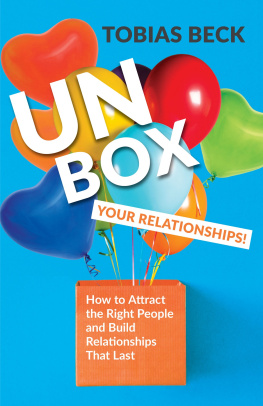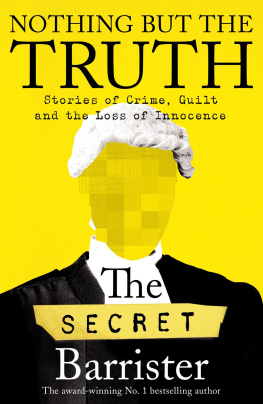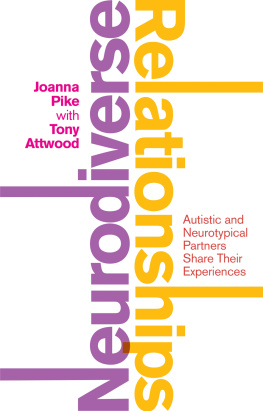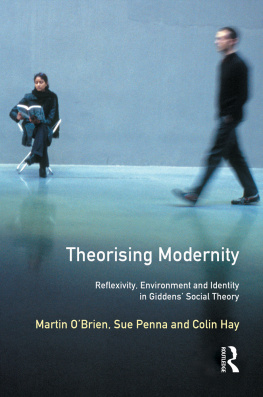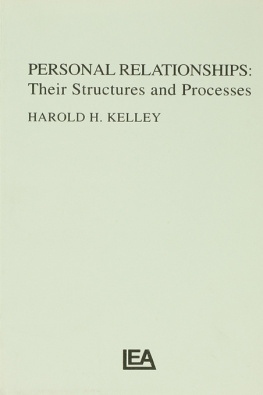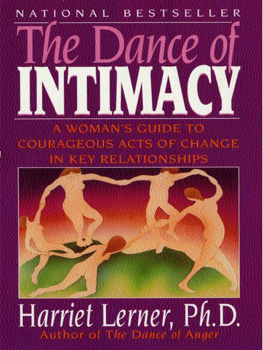First published 2013 by Ashgate Publishing
Published 2016 by Routledge
2 Park Square, Milton Park, Abingdon, Oxon OX14 4RN
711 Third Avenue, New York, NY 10017, USA
Routledge is an imprint of the Taylor & Francis Group, an informa business
Copyright Jenny van Hooff 2013
Jenny van Hooff has asserted her moral right under the Copyright, Designs and Patents Act, 1988, to be identified as the author of this work.
All rights reserved. No part of this book may be reprinted or reproduced or utilised in any form or by any electronic, mechanical, or other means, now known or hereafter invented, including photocopying and recording, or in any information storage or retrieval system, without permission in writing from the publishers.
Notices:
Product or corporate names may be trademarks or registered trademarks, and are used only for identification and explanation without intent to infringe.
British Library Cataloguing in Publication Data
Hooff, Jenny van.
Modern couples? : continuity and change in heterosexual relationships.
1. Man-woman relationships. 2. Couples. 3. Heterosexuals--Attitudes.
I. Title
306.84108662-dc23
Library of Congress Cataloging-in-Publication Data
van Hooff, Jenny.
Modern couples? : continuity and change in heterosexual relationships / by Jenny Van Hooff.
p. cm.
Includes bibliographical references and index.
ISBN 978-1-4094-3913-4 (hardback)
1. Couples. 2. Man-woman relationships. 3. Intimacy (Psychology) I. Title.
HQ801.V279 2012
306.7--dc23
2012030856
ISBN 9781409439134 (hbk)
Chapter 1
Locating the Couple in Sociological Theory
Intimate relationships, taking the form of family, kin, sexual and couple relationships, along with other associations including friendship, lie at the centre of contemporary sociological debate. Analysis has shifted from rigid conceptualizations of the family as an institution towards the more nuanced category of personal life (Smart, 2007), with an increasing focus on the role that networks of various intimates play in our personal lives (Jamieson et al., 2006). Yet in popular understanding and social reality the couple is often treated as the centre of our intimate and erotic lives (Jamieson, 1998). This book is essentially a qualitative investigation of the expectations and experiences of partners within co-resident heterosexual relationships, which explores the enduring appeal of this type of partnership.
Recent thought about intimacy revolves around the theme of social change, with discussion focusing on the impact of wider societal change on personal relationships. The related processes of individualization, detraditionalization and increased self-reflexivity are generally accepted as the context that has enabled the posited developments in relationships. While the individualization thesis was not at first primarily concerned with intimacy, it has become a core metaphor through which sociological analysis of family life is now pursued (Smart and Shipman, 2004). Within this debate three dominant perspectives have emerged, towards which most of the literature corresponds. These approaches stress either the potential offered by the democratization of intimate relationships, the resulting breakdown of family relationships, or the continuation of traditional inequalities and power structures. The research presented here is essentially an empirical investigation of this ongoing debate, with a particular focus on the changing nature of couple relationships. Before going on to summarize the methodological approach taken, the research is contextualized within wider sociological discussions of intimate relationships.
The Democratization Thesis
The reshaping of personal relationships since the 1960s has led to claims that our intimate lives are the premier site of detraditionalization within late modernity (Gross, 2005: 286). Anthony Giddens is one of the more influential theorists to have written about intimate relationships within the context of a late modern social setting. For this reason the issues raised by his work, in particular the claims made in The Transformation of Intimacy (1992) form a major focus of this book. Giddens (1991, 1992) posits the emergence of confluent love and the pure relationship as reflections of a wider social shift towards new forms of self-identity. As the concern here is with the contemporary forms of the late modern heterosexual pair relationship and the changes it has undergone both as an ideology and a social reality in the past few decades, the rhetoric of the pure relationship is particularly relevant in informing my approach.
For Giddens, the emergence of the pure relationship is of key importance for the transformation of intimacy, as it is prototypical of the new spheres of personal life (Giddens, 1991: 6). The pure relationship is defined as radically different from traditional forms of personal relationships, as it is internally referential and therefore exists solely for whatever rewards that relationship as such can deliver (Giddens, 1991: 6). Giddens (1992) traces the development of the pure relationship in order to place it in an historical context. He begins with the emergence of romantic love, an ideal that was widely diffused in the nineteenth century, when marriage began to lose the economic and kinship ties which were so crucial in premodern arrangements. Pre-industrial marriage was designed to ensure a familys survival as an economic unit and as such was rarely motivated by love (Stone, 1979). With the ensuing separation of the private and public spheres of life, love became celebrated as the main reason for marriage. Middle class couples also began to limit the amount of children they had, and this placed a finger on the trigger so far as sexuality was concerned (Giddens, 1992: 26).
The emphasis placed on love within marriage began a reordering of emotional life and, according to Giddens, introduced the idea of narrative into an individuals life, which refers to the stories by which self-identity is understood both by the individual concerned and others (Giddens, 1992: 3940). Paradoxically, romantic love was essentially feminized love (Giddens, 1992: 43), although it ensured female subordination by tying women to the home. The extent to which marriage for love came about as a result of industrialization and capitalism, as Giddens maintains, have been questioned, as within Europe free choice of marriage partner predates these developments (Jackson, 1993: 208).
While elements of romantic love ensured the creation of the pure relationship, many of its influences have been destroyed by the emergence of confluent love. The consequences of romantic love for women are incompatible with the egalitarian partnership at the heart of the pure relationship. Confluent love, the successor to romantic love, is an active, contingent love (Giddens, 1992: 61), which presumes equality in emotional give and take (Giddens, 1991: 62). Confluent love differs from romantic love on several points. Firstly, it does not value the forever and one and only (Giddens, 1992: 61) qualities of romantic love, as the finding of a special relationship becomes more important than pledging oneself to a special person. Confluent love also relies on reciprocal sexual pleasure as a core element of a relationship, and in doing so presumes the disappearance of the respectable woman. Furthermore, confluent love is not exclusive to heterosexual relationships, as it is not based on gender difference in the way that romantic love is and it is also not necessarily monogamous. Mutual disclosure is central to confluent love and represents the antithesis of the ideal of mystery, which was so crucial to romantic love. Fragments of romantic love remain, however it is confluent love that characterizes a pure relationship.


